Reaching climate goals with ASIA Aker Brygge, first UN certified restaurant in the world
The restaurant specializes in innovative Asian food. They truly excel in sustainability, tracking their carbon footprint, avoiding single-use plastic and encouraging reusable takeaway containers. They are the first UN certified restaurant in the whole world through the Climate Neutral Now initiative.
CLIENT
ASIA Aker Brygge
Location
Oslo, Norway
Industry
Restaurant, Sustainable Dining
Uses Klimato for
Calculating emissions, Carbon labeling menus and Sustainability reporting

“Measure what you do so you know where to make an impact. It has been one of our northern stars and has been very much of help for us to get that extra motivation to go through with the whole work.”
Pernille Koppang
Head of Operations and Sustainability
The Challenge
Even though already being a leader in the sustainable dining industry, ASIA still felt like they needed some help in reducing their carbon footprint. In order to achieve their goals, they started working with Klimato in 2019, and have been excelling with our tool ever since.
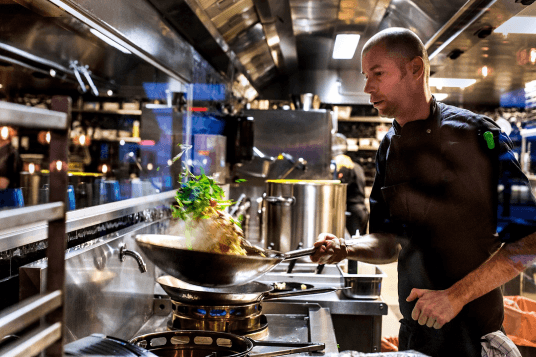
The Solution
To address this challenge, ASIA decided to use Klimato’s features in the following ways:
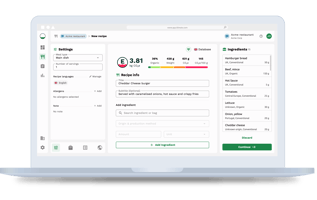
Calculator feature
to Measure Carbon Emissions
By adding the different ingredients from their dishes to the Klimato tool, ASIA is able to accurately measure the carbon footprint for each ingredient, as well as for the whole dishes, so they are enabled to make smarter choices when planning their menu.

Carbon labels
to communicate and educate
After calculating footprints, ASIA is able to display each dish’s carbon footprint on their menu in the form of a carbon label. This way, they can engage customers in constructive conversations about food’s climate impact without having to interfere with their dining experience and decision process. Carbon labels are a very important part of having that conversation, and customers’ reactions and choices confirm that.
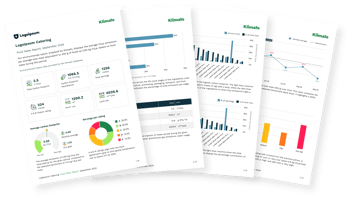
Reporting feature
to track and compare
ASIA also makes good use of Klimato’s reporting function to measure their food’s carbon footprint month on month, in order to compare and track their progress over time.
DIGGING INTO THE NUMBERS
Results
ASIA’s results after using Klimato speak for themselves. The average carbon footprint per meal sold has gone down from 1.2 kg CO2e to 0.7 kg CO2e - a real achievement! A staggering 42% decrease in CO2e emissions!
Working with Klimato as a Head Chef and Head of Operations and Sustainability Pernille Koppang and ASIA Aker Brygge’s star chef Karl MacEwan both relentlessly work to serve climate friendly food and become an overall more sustainable business. They were happy to share their experience with Klimato as food professionals:
“I think what’s the advantage of Klimato is that they have great knowledge of how the restaurant industry works, so it was easy to start working together because I felt we spoke the same language.”
- Pernille Koppang, Head of Operations and Sustainability
On his side, Chef Karl MacEwan has found the web-app fundamental for chefs to develop a sustainable menu:
“The tool is quick and easy to use and allows us to verify which ingredients have a high impact. The tool has convinced me now of the impact ingredients have on the world around us and that as chefs we are all stewards for the environment and have the ability to influence and dictate the way food will be viewed in the future.”
- Karl MacEwan, Head Chef
After using Klimato for 3 years, their sales predominantly consisted of low and medium impact dishes, showing that Klimato’s labels do influence consumer choice for the better in terms of environmentally friendly food choices.
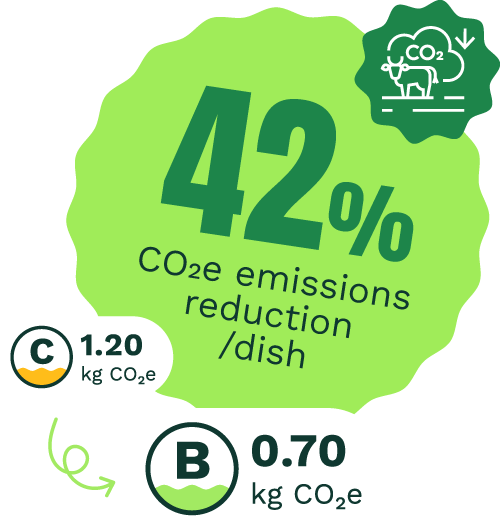
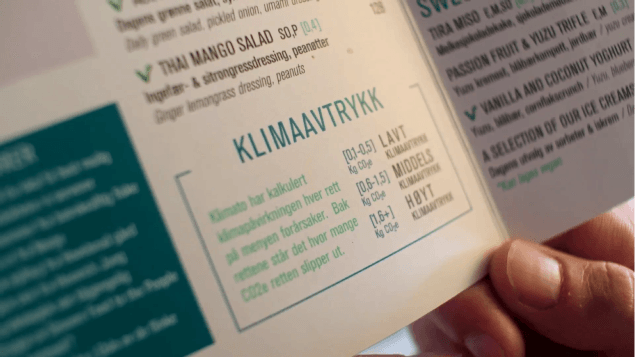
Klimato makes it easier to Reduce emissions from food and meet sustainability Goals
Through carbon emission calculation, carbon-labeled menus and monthly reports, Sodexo has successfully engaged employees and visitors by empowering them to make informed choices, proving that they are a pioneer within the catering sector. Together with Klimato, Sodexo is proud to continue their journey towards reducing their food’s carbon impact and inspiring future generations to embrace sustainable food cultures.



